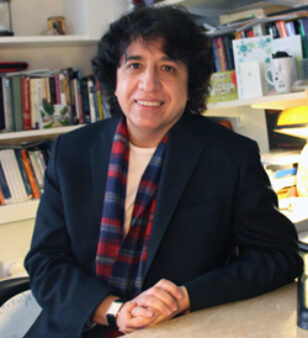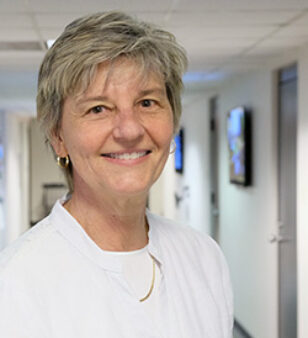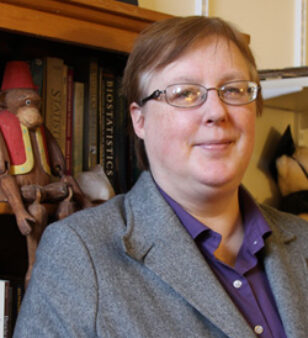Want to Learn More?
The curriculum we offer is designed to provide you with a comprehensive view of the field of psychology, an empirical science focused on understanding behavior and mental processes.
We see you immersed in a wide variety of psychology topics, which will help you make an informed choice when it comes to focusing on your future interests, whether you decide to pursue an advanced graduate degree or enter the workforce. Throughout your studies, you will find numerous opportunities to enhance your marketability to graduate schools and future employers by developing your communication skills, networking with alumnae in the field, and completing valuable internships.
Whether you envision your career following a path that is therapeutic or research-based, animal- or human-related, earning your psychology degree at Cedar Crest College will give you the expert instruction and hands-on research opportunities you need to succeed.
This program is also available as a minor.
The Cedar Crest College Advantage
Every faculty member in the psychology department holds a Ph.D. degree, and each has expertise in a different area of psychology. This means we can offer you many unique and diverse perspectives on the field.
Unique course offerings and learning opportunities
We offer many courses that other colleges do not make available at the undergraduate level, such as Counseling Children, Positive Psychology, Women in the Workplace, Criminal Behavior and Profiling, Mind-Body Medicine, The Psychology of Dreams, Principles of Behavior Modification, and The Psychology of Stereotypes and Prejudice.
We also have multiple lab spaces that are accessible to students. You will receive training on equipment and software that will allow you to observe and document the behavior of humans and animals in response to an array of stimuli. In the classroom, or in the lab, students will have the opportunity to explore many fascinating topics.
A strong liberal arts base
Our curriculum is designed to encourage students to pursue interdisciplinary studies in areas such as criminal justice, education, business, art, and more. It also emphasizes the development of valuable skills such as communication and leadership.
Multiple presentation opportunities
Students have the opportunity to present their research to large audiences at psychology conferences the College attends each year.
Professional development
Our faculty and staff are available to help you find an internship, improve your resume, apply to graduate schools, connect to alumnae in the field, and anything else that will assist your overall career and educational goals.
Community service and outreach
Here, you may choose to participate in health and wellness-related community service and women’s leadership activities through the Psychology Club. Students who excel academically may apply to join the Psi Chi International Honor Society and participate in their many outreach programs and on-campus activities.
Mission Statement
Psychology is a diverse field that is best defined as the scientific study of behavior and experience. The mission of the psychology program at Cedar Crest College is, therefore, to provide students with a series of core and elective courses and experiences that are based on the historical, theoretical, and empirical foundation of the discipline of psychology. This foundation is consistent with the perennial basis of a liberal arts education and is hence congruent with the college’s basic mission that focuses on scholarship and creativity. The multifarious nature of the faculty’s scholarship as well as the multiplicity of courses taught by them make the department highly distinctive and on the cutting edge of the developments in the field of psychology.
Dive A Little Deeper
Featured Event

Upcoming Admissions Events
Hear From Your Peers
Cooperative Agreements
Cedar Crest College collaborates with several academic institutions to provide our students with innovative pathways that help them succeed in their chosen fields.

How To Apply
Ready to apply as an undergraduate student?

Accreditation
Cedar Crest College is accredited by the Middle States Commission on Higher Education; 1007 North Orange Street, 4th Floor, MB #166, Wilmington, DE 19801
Faculty & Staff
Who’s teaching you is as important as the curriculum you choose.
Let’s put a face to some of the names you’ll be seeing on the course listings!
- School of Adult and Graduate Education
- sage@cedarcrest.edu
- P: 610-740-3770
- Traditional Admissions
- admissions@cedarcrest.edu
- P: 800-360-1222
- F: 610-740-3780




